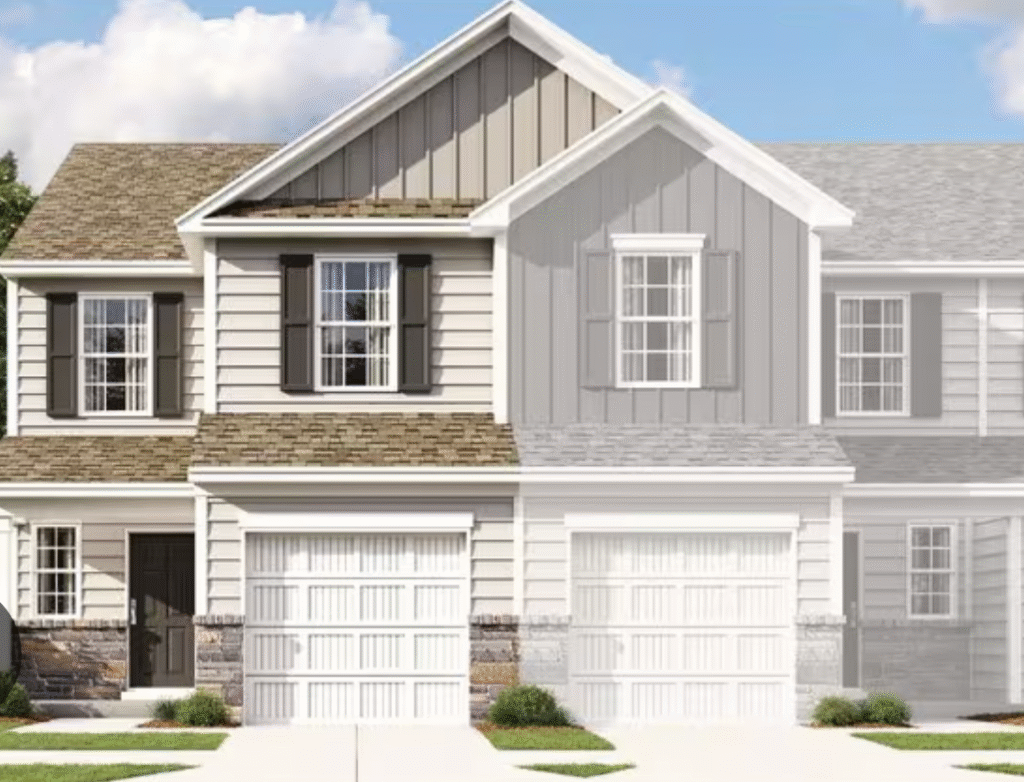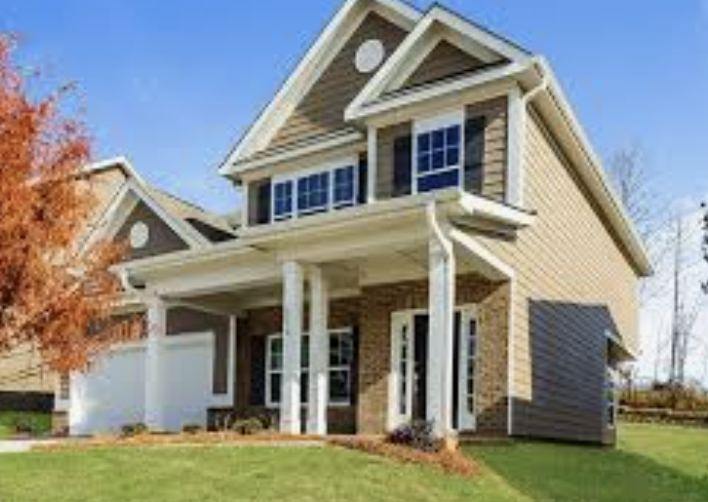South Carolina’s housing market offers affordability compared to coastal hotspots like California or Florida, making it ideal for friends pooling resources. Greenville, in particular, has seen a 5.2% year-over-year home price increase, yet remains accessible with a cost of living 10% below the national average. For roommates turned co-owners, co-buying reduces individual financial burdens, allowing access to desirable neighborhoods like Augusta Road or Overbrook. However, hidden costs like property taxes, HOA fees, and maintenance can surprise unprepared buyers. By understanding these expenses and leveraging savings strategies, friends can create a sustainable financial plan. Lisa Lee, a seasoned mortgage broker with Carolina One Mortgage, emphasizes, “Clear budgeting and open communication are key to making co-ownership work. Let’s plan smart to avoid surprises.”
Breaking Down Key Costs
1. Property Taxes in South Carolina
Overview: South Carolina boasts one of the lowest property tax rates in the U.S., averaging 0.55% of a home’s assessed value. In Greenville County, the effective rate is around 0.67%, slightly higher due to urban amenities and school funding. For a $370,000 home, annual property taxes approximate $2,479.
Hidden Costs:
- Assessment Increases: South Carolina reassesses properties every five years, and Greenville’s growth may lead to higher valuations, increasing taxes. For example, a 10% value increase could raise taxes to $2,727 annually.
- Non-Owner-Occupied Rates: If the home is a second home or rental, the tax rate jumps to 6% of assessed value (e.g., $5,550 for a $370,000 home). Friends must clarify primary residence status to avoid this.
- Special Assessments: Some Greenville neighborhoods, like those near downtown, may face additional levies for infrastructure projects, adding $200-$500/year.
Savings Opportunities:
- Homestead Exemption: If one co-owner is 65 or older, disabled, or a veteran, the first $50,000 of the home’s value is tax-exempt, saving ~$335/year on a $370,000 home.
- Primary Residence Deduction: Ensure the home is registered as a primary residence to secure the lower 4% assessment rate, saving thousands compared to the 6% rate.
- Split Equitably: Friends can divide taxes based on ownership shares (e.g., 50/50 for equal shares or 60/40 for unequal contributions), using a joint account for payments.
Lisa’s Tip: “Verify your tax rate with the Greenville County Tax Assessor’s office before budgeting. Splitting taxes proportionally keeps things fair,” says Lisa Lee.
2. HOA Fees in Greenville

Overview: Many Greenville neighborhoods, especially newer developments like Hollingsworth Park or Riverwalk, have Homeowners Associations (HOAs) to maintain shared amenities like pools, parks, or landscaping. Fees range from $200-$600/month, depending on amenities and property type (condo vs. single-family home).
Hidden Costs:
- Special Assessments: HOAs may impose one-time fees for unexpected repairs (e.g., $1,000-$5,000 for roof replacements or road repaving). In 2024, some Greenville HOAs charged $2,000 for stormwater system upgrades.
- Amenity Costs: Optional fees for clubhouses or golf courses (e.g., $100-$300/month) can add up if both friends use them.
- Fee Increases: HOA fees typically rise 3-5% annually. A $400/month fee could hit $460 in five years, impacting long-term budgets.
Savings Opportunities:
- Choose Low-Fee HOAs: Opt for communities with minimal amenities (e.g., $150-$250/month in older Greenville subdivisions like North Main) to reduce costs.
- Negotiate Upfront: Ask sellers to cover the first year’s HOA fees during closing, saving $2,400-$7,200 upfront.
- Split Based on Usage: If one friend uses amenities more (e.g., gym or pool), adjust the split (e.g., 60/40) to reflect usage, tracked via shared apps like Splitwise.
Lisa’s Tip: “Review the HOA’s financial reserves before buying. A well-funded HOA reduces surprise assessments,” advises Lisa. Contact her at Carolina One Mortgage for help reviewing HOA documents.
3. Mortgage Payments and Down Payments
Overview: For a $370,000 home in Greenville, a 20% down payment is $74,000, with a 30-year fixed mortgage at 6.5% yielding monthly payments of ~$2,100 (principal and interest). Splitting this equitably is critical for co-buyers.
Hidden Costs:
- Private Mortgage Insurance (PMI): If friends can’t afford a 20% down payment, PMI adds $100-$300/month until 20% equity is reached. For a 10% down payment ($37,000), PMI could cost $150/month.
- Escrow Costs: Lenders often require escrow accounts for taxes and insurance, adding $300-$500/month to payments, which friends must split.
- Rate Fluctuations: If interest rates rise (e.g., to 7%), monthly payments could increase to $2,250, impacting budgets.
Savings Opportunities:
- Pool Resources for Down Payment: Friends can combine savings to reach 20% ($37,000 each for a $370,000 home), avoiding PMI and lowering monthly payments.
- South Carolina Assistance Programs: The SC Housing Finance and Development Authority offers down payment assistance up to $8,000 for first-time buyers (neither friend owned a home in three years), reducing each friend’s contribution to $33,000.
- Shop Lenders: Compare rates from local lenders like SouthState Bank or Palmetto Citizens Federal Credit Union. A 0.5% rate reduction saves ~$150/month.
Lisa’s Tip: “Apply for a joint mortgage to combine incomes and qualify for better rates. I can connect you with lenders offering SC-specific programs,” says Lisa Lee.
4. Maintenance and Utilities

Overview: Maintenance for a Greenville home includes landscaping, HVAC servicing, and repairs, costing $2,000-$5,000/year. Utilities (electricity, water, internet) average $300-$500/month.
Hidden Costs:
- Major Repairs: Roof replacements ($8,000-$15,000) or HVAC systems ($5,000-$10,000) can arise every 10-15 years, requiring significant savings.
- Seasonal Costs: Greenville’s humid climate demands dehumidifiers or mold remediation ($500-$2,000/year) in older homes.
- Utility Spikes: Summer AC use can push electricity bills to $200-$300/month, especially in larger homes.
Savings Opportunities:
- Maintenance Fund: Contribute $100/month each to a joint account, building $2,400/year for repairs. This covers routine costs and buffers larger expenses.
- Energy Efficiency: Invest in energy-efficient appliances or insulation (e.g., $1,000 upfront) to save $50-$100/month on utilities. South Carolina’s Duke Energy rebates can offset costs.
- Split Utilities: Use smart meters to track usage, splitting bills based on time spent in the home (e.g., 50/50 or prorated for unequal stays).
Lisa’s Tip: “Budget for maintenance as a team. A shared fund prevents one friend from bearing unexpected costs,” says Lisa.
5. Insurance Costs
Overview: Homeowners insurance in Greenville averages $1,200-$2,000/year, but flood insurance (common in low-lying areas) adds $800-$1,500/year.
Hidden Costs:
- Flood Zone Premiums: Parts of Greenville near the Reedy River are in flood zones, increasing premiums to $2,000/year.
- Deductible Surprises: High deductibles ($1,000-$5,000) for storm damage can catch co-owners off guard if not budgeted.
- Liability Coverage: If friends host guests or rent the home, additional liability coverage ($200-$500/year) may be needed.
Savings Opportunities:
- Shop Policies: Compare quotes from insurers like State Farm or Allstate to save $200-$400/year. Bundle home and auto for discounts.
- Split Premiums: Divide insurance costs based on ownership shares or usage, ensuring both names are on the policy.
- Mitigation Discounts: Install storm shutters or security systems to reduce premiums by 5-10%.
Lisa’s Tip: “Check if your Greenville home needs flood insurance early. I can guide you through coverage options,” says Lisa Lee.

Pooling Resources for Down Payments
Pooling resources is a cornerstone of co-buying, especially for the down payment, which can be a barrier for individual buyers. Here’s how friends can strategize in Greenville:
1. Combine Savings
- Equal Contributions: For a $74,000 down payment (20% of $370,000), each friend contributes $37,000. This avoids PMI and secures lower monthly payments.
- Unequal Contributions: If one friend has more savings (e.g., $50,000 vs. $24,000), use a tenancy in common deed to reflect ownership shares (e.g., 68%/32%). Adjust mortgage and tax splits accordingly.
- Gift Funds: South Carolina allows gift funds from family for down payments. If one friend receives a $20,000 gift, it can reduce their contribution, but document it to avoid lender scrutiny.
2. Leverage Assistance Programs
- SC Home Advantage: Offers up to $8,000 in down payment assistance as a forgivable loan for first-time buyers. If both friends qualify, this reduces the down payment to $58,000 ($29,000 each).
- Local Grants: Greenville County offers occasional grants for low-to-moderate-income buyers, up to $5,000, which can lower each friend’s share further.
- Employer Programs: Greenville’s growing tech and manufacturing sectors (e.g., BMW) may offer employee housing assistance. Check with HR for eligibility.
3. Creative Financing
- Seller Concessions: Negotiate for the seller to cover closing costs (2-3% of the home price, or $7,400-$11,100), freeing up funds for the down payment.
- Assumable Loans: Some FHA or VA loans in South Carolina are assumable, allowing friends to take over an existing low-rate mortgage, reducing upfront costs.
- Joint Mortgage: Combine incomes to qualify for a larger loan with a smaller down payment (e.g., 10% or $37,000 total), though PMI will apply.
Lisa’s Tip: “Pooling resources is smart, but document contributions clearly in your co-ownership agreement to avoid disputes,” advises Lisa. Contact her for tailored financing solutions.
Strategies for Managing Shared Costs
To ensure financial harmony, friends must plan how to split ongoing costs and handle unexpected expenses. Here are practical strategies:
1. Create a Joint Bank Account
- Open a shared account for mortgage, taxes, insurance, and maintenance. Each friend contributes monthly (e.g., $1,500 each for a $3,000 total payment).
- Use online banking to automate payments, reducing missed deadlines that could harm credit scores.
2. Use Expense-Tracking Apps
- Apps like Splitwise or Settle Up track utility and maintenance splits, especially if usage varies (e.g., one friend stays longer). For example, split a $400 utility bill 60/40 if one friend uses the home more.
- Review expenses quarterly to ensure fairness and adjust for seasonal spikes.
3. Establish a Maintenance Fund
- Contribute $100-$150/month each to cover routine maintenance ($2,400-$3,600/year). This buffers costs like HVAC servicing ($300/year) or tree removal ($500-$1,000).
- Agree on a cap for major repairs (e.g., $5,000), requiring mutual consent for larger expenses.
4. Plan for Rental Income
- Greenville’s rental market is strong, with 3-bedroom homes fetching $1,800-$2,500/month. If friends rent the home part-time, allocate 10-20% of income to a maintenance fund and split the rest based on ownership shares.
- Hire a property manager (10-15% of rental income) to handle bookings, splitting fees equitably.
5. Draft a Co-Ownership Agreement
- Outline cost splits, usage schedules, and exit strategies. For example, specify that taxes and HOA fees are split 50/50, but utilities are prorated by usage.
- Include a buyout clause (e.g., fair market value determined by an appraisal, costing $300-$500) if one friend wants to exit.
- Consult a South Carolina real estate attorney ($500-$1,500) to ensure the agreement complies with state laws.
Avoiding Financial Pitfalls
- Credit Risks: Both friends are liable for the mortgage. If one misses payments, both credit scores suffer. Set up automatic alerts for payment due dates.
- Tax Disputes: Ensure both friends agree on claiming tax deductions (e.g., mortgage interest). South Carolina allows proportional deductions based on ownership shares.
- Unexpected Costs: Budget for Greenville’s humid climate, which may require dehumidifiers ($200-$500) or pest control ($100-$300/year).
- Legal Clarity: File the co-ownership agreement with the Greenville County Register of Deeds ($15-$25) to make it public record, protecting against disputes.
Why Greenville?
Greenville’s booming economy, with companies like Michelin and BMW, drives housing demand, yet prices remain affordable compared to Charleston ($450,000 median). Neighborhoods like Augusta Road offer historic charm, while newer communities like Verdae provide modern amenities. Friends can enjoy Falls Park, Swamp Rabbit Trail, and a vibrant downtown, making co-ownership a lifestyle investment. The city’s 4.8% appreciation rate ensures strong equity growth, ideal for long-term co-buyers.
Conclusion

Co-buying a home in South Carolina, particularly in Greenville, is a smart way for roommates to become co-owners, sharing costs and building wealth. By budgeting for property taxes ($2,479/year), HOA fees ($200-$600/month), and maintenance ($2,000-$5,000/year), and pooling resources for down payments, friends can navigate hidden costs and maximize savings. Strategies like joint accounts, assistance programs, and clear agreements ensure financial harmony. Lisa Lee at Carolina One Mortgage can guide you through financing options, from SC Home Advantage loans to joint mortgages, tailored to your co-buying needs. Contact Lisa today at lisa@carolinaonemortgage.com or (864) 555-1234 to start your shared homeownership journey in Greenville’s thriving market.
